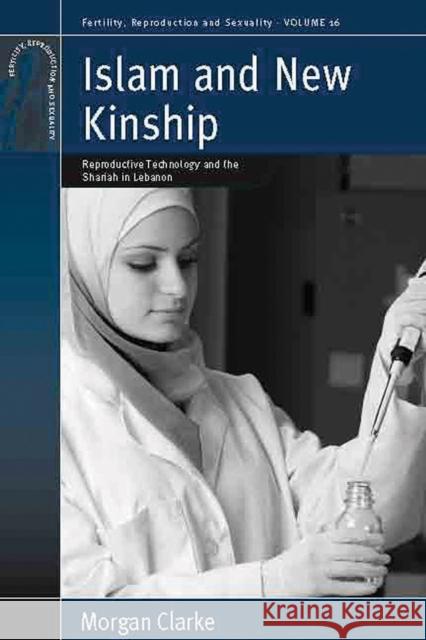Islam and New Kinship: Reproductive Technology and the Shariah in Lebanon » książka
Islam and New Kinship: Reproductive Technology and the Shariah in Lebanon
ISBN-13: 9780857451408 / Angielski / Miękka / 2011 / 262 str.
Islam and New Kinship: Reproductive Technology and the Shariah in Lebanon
ISBN-13: 9780857451408 / Angielski / Miękka / 2011 / 262 str.
(netto: 111,71 VAT: 5%)
Najniższa cena z 30 dni: 115,63
ok. 30 dni roboczych.
Darmowa dostawa!
Clarke engages in a thorough and captivating assessment of the numerous fatwas issued in the context of global Islamic legal scholarship concerning medical ethics, in particular, medically assisted conception . . . This book will be of considerable interest to scholars in the areas of gender and health, reproduction and reproductive technologies, Islamicists, and those engaged in comparative kinship studies. Cont Islam The book is theoretically sophisticated, beautifully written, and brilliantly cohesive . . . Most admirable is the endeavour to analyse the perspectives revealed "on their own terms" within the societies that produce them. Journal of the Royal Anthropological Institute A] fascinating and well-written book . . . By thinking through anthropological and Islamic debates of assisted conception in a Middle Eastern setting, Islam and New Kinship is highly valuable for students and scholars interested in medical anthropology, kinship studies, Middle Eastern studies, as well as science and technology studies. Social Anthropology In this very detailed examination . . . Clarke presents a nuanced look at how both individuals and institutions interpret or manipulate Islamic teachings and concepts . . . the book represents an outstanding piece of scholarship for anyone interested in Islam, kinship, medical anthropology, or gender studies. Highly recommended. Choice This book is a mine of information, carefully researched and lucidly argued. It opens up a fascinating problematic (that is, a can of worms) that only Muslims (all Muslims, male and female) need seriously to address over the coming decades. The shape of future Muslim attitudes depends on the outcomes of this. Journal of Beliefs and Values An accomplished piece of work on several levels. Islam and New Kinship not only provides a detailed and nuanced account of how Islamic legal scholars and medical practitioners in Lebanon respond to new reproductive and genetic technologies, but also reveals what is missing from 'new' kinship studies. It is a compelling read and a must, not only for scholars of kinship and religion but for anybody with an interest in the rich complexity of contemporary Lebanese society. Jeannette Edwards, University of Manchester
Clarke engages in a thorough and captivating assessment of the numerous fatwas issued in the context of global Islamic legal scholarship concerning medical ethics, in particular, medically assisted conception . . . This book will be of considerable interest to scholars in the areas of gender and health, reproduction and reproductive technologies, Islamicists, and those engaged in comparative kinship studies. Cont IslamThe book is theoretically sophisticated, beautifully written, and brilliantly cohesive . . . Most admirable is the endeavour to analyse the perspectives revealed "on their own terms" within the societies that produce them. Journal of the Royal Anthropological Institute[A] fascinating and well-written book . . . By thinking through anthropological and Islamic debates of assisted conception in a Middle Eastern setting, Islam and New Kinship is highly valuable for students and scholars interested in medical anthropology, kinship studies, Middle Eastern studies, as well as science and technology studies. Social AnthropologyIn this very detailed examination . . . Clarke presents a nuanced look at how both individuals and institutions interpret or manipulate Islamic teachings and concepts . . . the book represents an outstanding piece of scholarship for anyone interested in Islam, kinship, medical anthropology, or gender studies. Highly recommended. ChoiceThis book is a mine of information, carefully researched and lucidly argued. It opens up a fascinating problematic (that is, a can of worms) that only Muslims (all Muslims, male and female) need seriously to address over the coming decades. The shape of future Muslim attitudes depends on the outcomes of this. Journal of Beliefs and ValuesAn accomplished piece of work on several levels. Islam and New Kinship not only provides a detailed and nuanced account of how Islamic legal scholars and medical practitioners in Lebanon respond to new reproductive and genetic technologies, but also reveals what is missing from new kinship studies. It is a compelling read and a must, not only for scholars of kinship and religion but for anybody with an interest in the rich complexity of contemporary Lebanese society. Jeannette Edwards, University of Manchester











